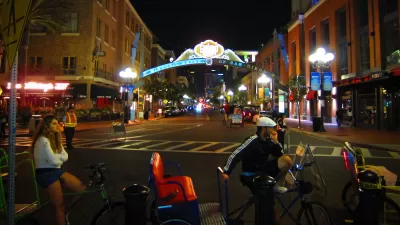Since enacting a spate of regulations on short-term rentals, the city has removed over 7,000 illegal listings from online platforms.

A year after San Diego began requiring licenses for short-term rentals, the city says it has removed over 7,000 illegal listings from online platforms.
According to an article by Lori Weisberg and Roxana Popescu in The San Diego Union-Tribune, “Among the almost 1,800 cases the city has processed, there were nearly 500 unlicensed rentals, more than 400 units that didn’t post a host’s contact information so it was visible to the public, and dozens more instances where hosts were unresponsive to complaints about noise.”
Last year’s ordinance was the city’s first attempt to regulate rentals under 30 days. It caps licenses at one per person and citywideSTRs at 6,592. “Current regulations allow just one license per person, plus a citywide cap of 6,592 licenses for the rental of entire homes for at least 90 days out of the year. Since May of last year, the city has issued more than 5,800 two-year licenses – at a cost of $1,000 each – for whole-home rentals throughout the city.”
Most owners have complied with regulations, and the city only assessed six $1,000 fines. “Revenue to the city from license and application fees has generated more than $7.5 million as of June 30, which so far has more than covered program enforcement costs of over $6.7 million.”
While the city relied on an external analyst to identify non-compliant listings over the last year, the new budget doesn’t include funding for the company. The city plans to rely on STR platforms to self-report listings, which could reduce the effectiveness of the program.
City officials are meeting to discuss potential changes to the program, acknowledging that some owners have gone to unexpected lengths to subvert the rules and operate multiple rentals.
FULL STORY: San Diego’s short-term rental regs a year later: Is the city cracking down on scofflaws?

Study: Maui’s Plan to Convert Vacation Rentals to Long-Term Housing Could Cause Nearly $1 Billion Economic Loss
The plan would reduce visitor accommodation by 25,% resulting in 1,900 jobs lost.

North Texas Transit Leaders Tout Benefits of TOD for Growing Region
At a summit focused on transit-oriented development, policymakers discussed how North Texas’ expanded light rail system can serve as a tool for economic growth.

Why Should We Subsidize Public Transportation?
Many public transit agencies face financial stress due to rising costs, declining fare revenue, and declining subsidies. Transit advocates must provide a strong business case for increasing public transit funding.

How to Make US Trains Faster
Changes to boarding platforms and a switch to electric trains could improve U.S. passenger rail service without the added cost of high-speed rail.

Columbia’s Revitalized ‘Loop’ Is a Hub for Local Entrepreneurs
A focus on small businesses is helping a commercial corridor in Columbia, Missouri thrive.

Invasive Insect Threatens Minnesota’s Ash Forests
The Emerald Ash Borer is a rapidly spreading invasive pest threatening Minnesota’s ash trees, and homeowners are encouraged to plant diverse replacement species, avoid moving ash firewood, and monitor for signs of infestation.
Urban Design for Planners 1: Software Tools
This six-course series explores essential urban design concepts using open source software and equips planners with the tools they need to participate fully in the urban design process.
Planning for Universal Design
Learn the tools for implementing Universal Design in planning regulations.
Ascent Environmental
Borough of Carlisle
Institute for Housing and Urban Development Studies (IHS)
City of Grandview
Harvard GSD Executive Education
Toledo-Lucas County Plan Commissions
Salt Lake City
NYU Wagner Graduate School of Public Service





























